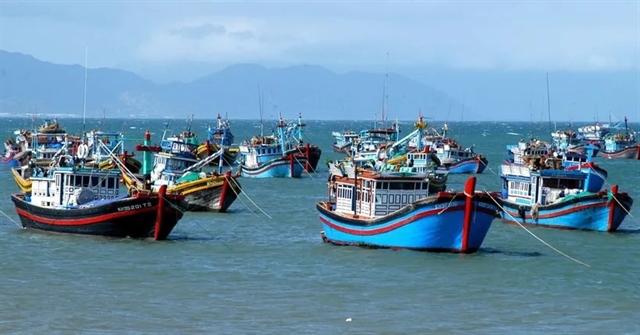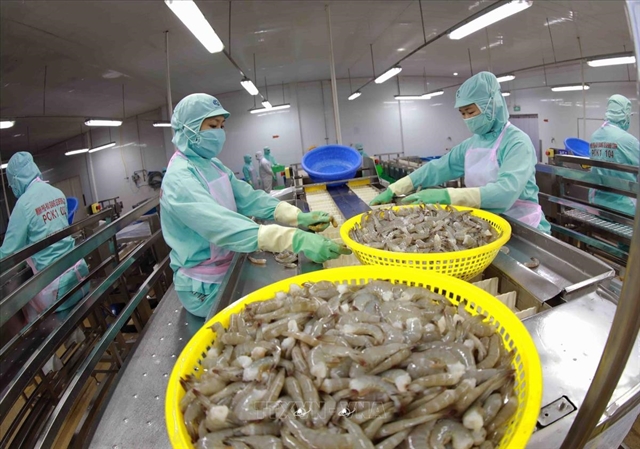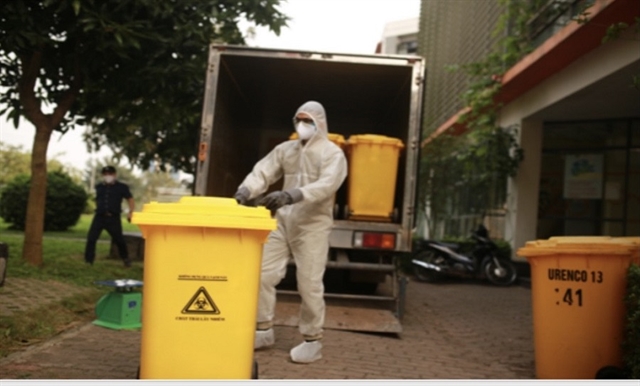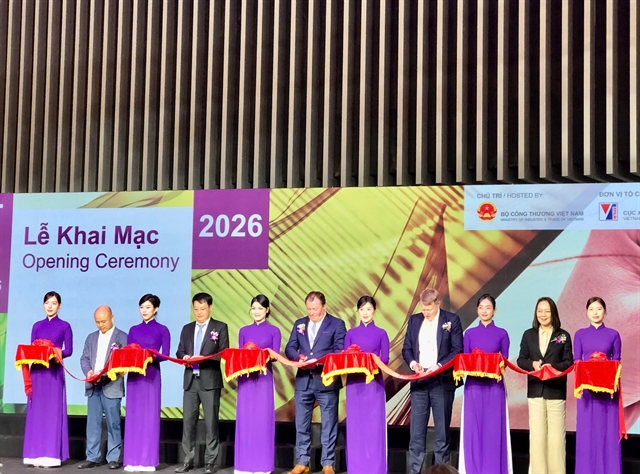 Society
Society

Hà Nội authority has paid more attention to the work of collection, transportation and treatment of household waste in the city, especially in residential areas where COVID-19 patients or people suspected of being infected with SARS-CoV-2 reside.

|
| An environmental worker collect garbage in a lockdown residential area in Hà Nội.— Photo kinhtedothi.vn |
HÀ NỘI — Authorities are paying more attention to the collection, transportation and treatment of household waste in the city in residential areas where COVID-19 patients or people suspected of being infected with SARS-CoV-2 reside.
Tống Việt Dũng, deputy director of the Urban and Industrial Environment No 13 Joint Stock Company said the company considered household waste in the residential areas, where COVID-19 patients or people suspected of being infected with SARS-CoV-2 resided, as potentially-infectious waste and treated it as hazardous medical waste.
“It aims to minimise the risk of disease transmission in the community,” he said.
Currently, the company is in charge of collecting household waste in several lockdown areas in the city, he said, the Kinh Tế Đô Thị (Urban Economy) online has reported.
In Đống Đa District, the company has installed trash cans and collected household waste at 14 areas under lockdown, including wards of Văn Chương, Nam Đồng, Thổ Quan, Láng Hạ and Hoàng Cầu, he said.
The process of collecting, transporting and treating household waste in lockdown areas has been implemented carefully and safely, and allowing no waste to become a source of disease transmission to the community, he said.
The company also works with the People’s Committee of each ward to disseminate information to local people in lockdown areas on how to sort waste to ensure safety, he said.
There are two trash cans, 240 litres each, being put in each lockdown area. One trash can is for holding potentially-infectious waste such as masks, tissues and medical protective clothing, another for holding normal household waste, he said.
The company's environmental workers collect the waste from the trash cans every hour in lockdown areas, he added.
Dũng said drivers and environmental workers must have their body temperature checked and wear protective clothing before going to lockdown areas to collect the waste. They must then disinfect the garbage trucks inside and outside before they leave.
After being taken from the trash cans, the potentially-infectious waste is put into a bag. The mouth of the bag is sealed tight. Then, the first bag is put into a second bag and thrown into the garbage truck, he said.
After transporting the waste from the lockdown areas to the waste treatment area, the waste is treated by autoclaving and drying technology to ensure all bacteria, viruses and pathogens are destroyed as regulations, he said.
The company has also ordered its environmental workers to not collect waste at other locations after collecting waste in the lockdown areas to ensure the highest safety, he said.
The garbage truck must go to the waste treatment areas after collecting waste in lockdown areas immediately.
Lê Hương Giang, vice chairwoman of the People’s Committee of Thổ Quan Ward, Đống Đa District, said currently the ward has locked down Lệnh Cư Alley, where 70 households are living after a person in the alley was confirmed as a COVID-19 patient.
The committee has strictly supervised the collection of household waste in the alley to avoid the spread of the COVID-19 pandemic to the community, she said.
The committee also coordinates with the company to instruct local people in the alley on how to classify and store household waste according to the regulations, she said.
The committee also arranges for people to spray disinfectants on all of the trash cans after residents threw waste into the cans.
A final spray of all trash cans is performed before environmental workers pushed the cans to the garbage trucks, she added.
Data from the Hà Nội Urban Environment One Member Co Ltd (URENCO) shows that the company collects about 6,500 tonnes of waste daily in the city.
The waste is transported to be treated in two landfills of Nam Sơn in Sóc Sơn District and Xuân Sơn in Sơn Tây District.— VNS




